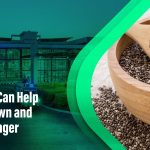Are you tired of living with the constant embarrassment of a flaky scalp and the dread of seeing your hair thin? Guess what? You are not the only one.
Millions of people suffer from dandruff, and this is such a common but an awful issue that affects not only our scalp but also our confidence and self-worth.
The constant itching, ugly flakes, and persistent anxiety about dandruff’s impact on hair loss can be stressful and alienating. Dandruff and hair loss can form a vicious cycle, leaving us wondering if there is any chance for a cure.
Dandruff and hair loss can form a vicious cycle, leaving us wondering if there is any chance for cure.
Will treating dandruff prevent hair loss? Can hair loss cause dandruff?
When such questions pop in your mind and you don’t know the answer, it can be overwhelming.
In this blog, we will look at this intricate link between dandruff and hair loss, like its causes, signs, and emotional effects.
What Causes Dandruff and Why Is It Prevalent?
Dandruff starts when your scalp sheds dead skin cells faster than usual, resulting in the birth of these famous flakes.
This process is a culmination of a variety of factors:
Dry Scalp: Lack of moisture can cause flakiness and irritation on your scalp.
Overproduction of Oil: An oily scalp can boost the growth of fungi that cause dandruff.
Malassezia: This naturally occurring yeast can overgrow on your oily scalp, and cause irritation and peeling.
Skin Conditions: Eczema and seborrheic dermatitis can create itchy, irritated spots on the scalp.
Dandruff’s Impact on Hair Loss
You may be asking, What is dandruff’s impact on hair loss? While dandruff does not cause hair loss directly, the symptoms it causes can indirectly contribute to it. Here’s how.
Constant Itching: Dandruff makes you continually scrape your scalp. Constant scratching can weaken your hair follicles, making the hair easy to break.
Scalp Inflammation: Chronic dandruff can create inflammation in your scalp, compromising its health. A chronically irritated scalp can interrupt the hair growth cycle, potentially leading to hair loss.
Clogged Follicles: When flakes and scalp oils accumulate around the follicles, they can also impede your hair growth. A clogged follicle prevents oxygen and nutrients from reaching the hair roots, causing thinner hair.
Symptoms to Look For in Dandruff and Hair Loss
Recognizing the early symptoms of dandruff’s impact on hair loss can help you take timely action.
Watch Out for Visible Flakes:
If you find any white or yellowish flakes in your hair or on your shoulders, yep.. it’s dandruff.
Itching and Irritation:
Mostly Dandruff comes with persistent scalp itching and irritation.
Inflammation:
If it is serious, dandruff can even cause reddening and pain.
Increased Hair Shedding:
You may see more hair in your brush or shower drain than normal. This could be due to weakened hair from scratching or inflammation.
Effective Dandruff Treatments for Healthy Hair
There are various methods you can take to control dandruff’s impact on hair loss.
These strategies can help minimize flaking, soothe irritation, and promote hair growth.
Use Anti-Dandruff Shampoo
Specialized shampoos that have ketoconazole, selenium sulfide, or zinc pyrithione can help you control dandruff and also to minimize irritation. Use them regularly to keep your scalp clean and healthy.
Keep Your Scalp Moisturized
Dry scalps can aggravate your dandruff. So use mild, moisturizing shampoos and conditioners to keep your scalp balanced. And it’s better to avoid using really hot water, as this might dry out the scalp even worse.
No Harsh Hair Care Products
Some styling products contain alcohol and other harsh chemicals that can further worsen your scalp dryness and irritation. Go for milder products to avoid aggravating dandruff and hair loss.
Limit Heat Styling
Regular use of heat styling products may rob moisture from the scalp and hair, causing flakiness. Cutting down your usage of these products and devices will help your scalp maintain its natural balance.
Maintain a Healthy Diet
Nutrients like zinc, vitamin E, and omega-3 fatty acids are super important for your scalp health and hair growth. A diet rich in leafy greens, nuts, and fish can give you these nutrients and promote stronger hair.
When to Look for Experts
If dandruff persists despite your best efforts, or if hair loss continues to be an issue, see a dermatologist.
They can evaluate your scalp’s health, diagnose underlying issues, and recommend refined treatments like:
Topical Treatments
Topical treatments like prescription ointments for inflammation and fungal infections.
Oral Medications
Used to treat severe scalp disorders or hair loss.
In-office Procedures
In office procedures like scalp treatments, which can deeply cleanse and rejuvenate your scalp.
Final Thoughts on Dandruff’s Impact on Hair Loss
Understanding dandruff’s impact on hair loss reveals an indirect link between a flaky scalp and hair health.
While dandruff does not directly cause hair loss, its symptoms can contribute to conditions that damage hair follicles, leaving your hair more sensitive.
Tackling dandruff early on with adequate care—whether through specialized shampoos, regular scalp cleanliness, or a well-balanced diet—can keep these disorders from harming your hair.
Remember that a healthy scalp is the basis for good hair.





